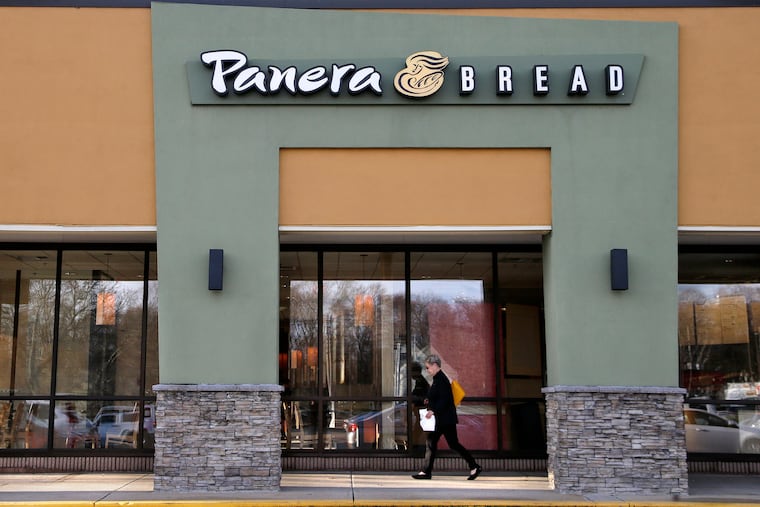Second wrongful death lawsuit filed against Panera involving Charged Lemonade
The complain by Dennis Brown's relatives follows a similar lawsuit filed by the family of University of Pennsylvania student Sarah Katz in October.

Panera Bread is facing a second wrongful death lawsuit over its Charged Lemonade, alleging that the highly caffeinated beverage contributed to a customer’s fatal cardiac arrest, echoing a complaint filed by the family of a University of Pennsylvania student in October.
Dennis Brown, 46, died Oct. 9 after having consumed three Charged Lemonade drinks from a Fleming Island, Fla., Panera location, according to the complaint, which was filed Monday on behalf of his family in Superior Court in Delaware, where the company is incorporated.
The drink, the lawsuit alleges, contributed to the “cardiac event” that resulted in Brown’s death.
Brown had an unspecified chromosomal disorder, ADHD, a developmental delay, and a mild intellectual disability, the complaint says. He lived independently and worked at a local Publix supermarket, often stopping at Panera following his shifts. He had high blood pressure, and “did not consume energy drinks,” according to the lawsuit.
The Brown family’s lawsuit is similar to a complaint filed in Philadelphia in October over the September 2022 death of Sarah Katz. Katz, a 21-year-old Penn student with a heart condition, died after drinking a Charged Lemonade from a West Philadelphia Panera, that lawsuit alleges.
Both Katz’s and Brown’s families are represented by attorney Elizabeth Crawford, of Philadelphia-based law firm Kline & Specter. Brown, like Katz, was “killed by Panera’s toxic super energy drink,” Crawford said.
“Dennis was a loyal Panera customer and reasonably trusted their food and drinks were safe,” Crawford said. “As a man with special needs living independently, he is part of a vulnerable population that should be protected. And Panera failed to protect Dennis.”
Panera said that it “stands firmly by the safety of our products,” but expressed “deep sympathy for Mr. Brown’s family.”
“Based on our investigation, we believe his unfortunate passing was not caused by one of the company’s products,” Panera said in a statement. “We view this lawsuit, which was filed by the same law firm as a previous claim, to be equally without merit.”
Charged Lemonade, the Brown family’s lawsuit alleges, is akin to an energy drink in that it contains up to 390 milligrams of caffeine in its largest, 30-ounce serving size, along with large amounts of sugar and the stimulant guarana. By comparison, three 12-ounce cans of the popular energy drink Red Bull contain a combined 342 milligrams of caffeine.
Healthy adults are able to safely consume up to 400 milligrams of caffeine daily, according to the U.S. Food and Drug Administration. The lawsuit does not mention the size of beverage Brown ordered on the day of his death.
Brown, the lawsuit says, worked for nearly 17 years at his local Publix and ate at Panera up to three times a week. Brown generally was also known to drink three beverages back-to-back, according to the complaint.
He began ordering Charged Lemonade in late September and had it several times throughout early October. Brown, the lawsuit alleges, ordered the drink “reasonably confident it was a traditional lemonade” containing safe levels of caffeine.
According to receipts referenced in the complaint, Brown ordered a Charged Lemonade on Oct. 9 at about 3:30 p.m. After staying for 90 minutes at the Panera location, where he is believed to have refilled the drink twice, he began walking home. During the walk, he suffered a cardiac arrest, and first responders found him unresponsive on a sidewalk at 5:45 p.m. He was pronounced dead at the scene.
Despite Charged Lemonade’s high caffeine content, Panera did not market or sell the beverage as an energy drink, instead advertising it as “Plant-based and Clean with as much caffeine as our Dark Roast Coffee,” the lawsuit alleges. The beverage was also “offered side-by-side” with non-caffeinated offerings in self-serve dispensers on the day of Brown’s death, according to the complaint.
The drink, a company spokesperson said, has 13 milligrams of caffeine per ounce, which is about the same as its dark roast coffee.
The lawsuit alleges that Panera’s handling of Charged Lemonade was “negligent, intentional, fraudulent [and] reckless.”
In late October, following the filing of the Katz lawsuit, the company began displaying new disclosures for the drink warning that it should be used “in moderation” and that it is not recommended for “children, people sensitive to caffeine, pregnant or nursing women.”
Brown’s family is seeking an unspecified amount in special, general, and punitive damages.